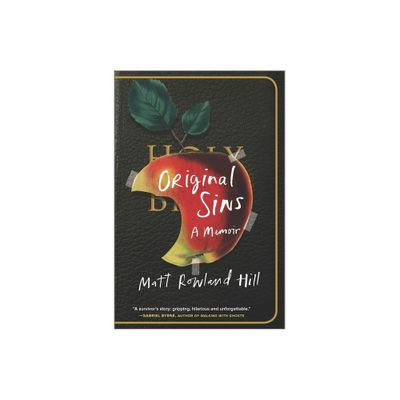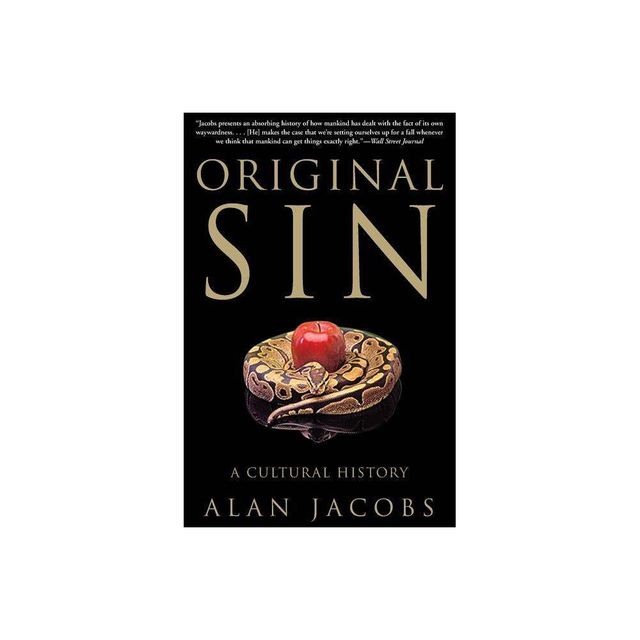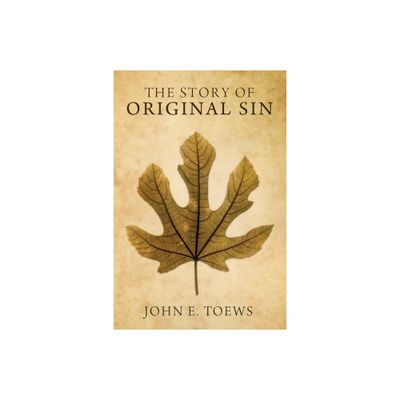Home
Original Sin and the Evolution of Sexual Difference
Loading Inventory...
Barnes and Noble
Original Sin and the Evolution of Sexual Difference
Current price: $100.00


Barnes and Noble
Original Sin and the Evolution of Sexual Difference
Current price: $100.00
Loading Inventory...
Size: Hardcover
*Product Information may vary - to confirm product availability, pricing, and additional information please contact Barnes and Noble
Original Sin and the Evolution of Sexual Difference
develops an interdisciplinary conversation between evolutionary biology, feminist philosophy, and theology in order to illuminate the entanglement of Christian thinking about original sin with theologies of sexual difference. It then assesses the opportunities for rethinking original sin and its implications for theologies of sexual difference in light of developments in evolutionary biology and feminist theology and philosophy.
Despite some resistances in the present age to conceptions of both original sin and meaningful sexual differences, this study argues that both can provide essential insights that help to make sense of some of the features of human life in the twenty-first century, especially the stubborn persistence of inequality, poverty, environmental degradation, and the pernicious patterns of sexual violence and abuse that have been uncovered by the #MeToo movement. To this end, Megan Loumagne Ulishney marshals resources from a variety of places-Augustine of Hippo, feminist theology, the Extended Evolutionary Synthesis, John Paul II, and a new group of feminist philosophers known as the New Feminist Materialists-to develop an analysis of original sin and sexual difference that is grounded in both scientific and theological insights about creaturely life. The project cultivates a sense of wonder at the diversity and unpredictability of human biology, a value for the role of creativity in the human participation that partially shapes our ongoing evolution, and humility about the extent to which we can predict and control the future of the evolution of our species. It illuminates the interdependencies that define creaturely life, the persistent entanglement of nature and culture, the centrality of desire to human identity and behaviour, and the role played by biology in the transmission of sin. It develops a vision of material life as evolving, generative, and imbued with activity, but also as simultaneously infected with sin and saturated with the divine.
develops an interdisciplinary conversation between evolutionary biology, feminist philosophy, and theology in order to illuminate the entanglement of Christian thinking about original sin with theologies of sexual difference. It then assesses the opportunities for rethinking original sin and its implications for theologies of sexual difference in light of developments in evolutionary biology and feminist theology and philosophy.
Despite some resistances in the present age to conceptions of both original sin and meaningful sexual differences, this study argues that both can provide essential insights that help to make sense of some of the features of human life in the twenty-first century, especially the stubborn persistence of inequality, poverty, environmental degradation, and the pernicious patterns of sexual violence and abuse that have been uncovered by the #MeToo movement. To this end, Megan Loumagne Ulishney marshals resources from a variety of places-Augustine of Hippo, feminist theology, the Extended Evolutionary Synthesis, John Paul II, and a new group of feminist philosophers known as the New Feminist Materialists-to develop an analysis of original sin and sexual difference that is grounded in both scientific and theological insights about creaturely life. The project cultivates a sense of wonder at the diversity and unpredictability of human biology, a value for the role of creativity in the human participation that partially shapes our ongoing evolution, and humility about the extent to which we can predict and control the future of the evolution of our species. It illuminates the interdependencies that define creaturely life, the persistent entanglement of nature and culture, the centrality of desire to human identity and behaviour, and the role played by biology in the transmission of sin. It develops a vision of material life as evolving, generative, and imbued with activity, but also as simultaneously infected with sin and saturated with the divine.


















